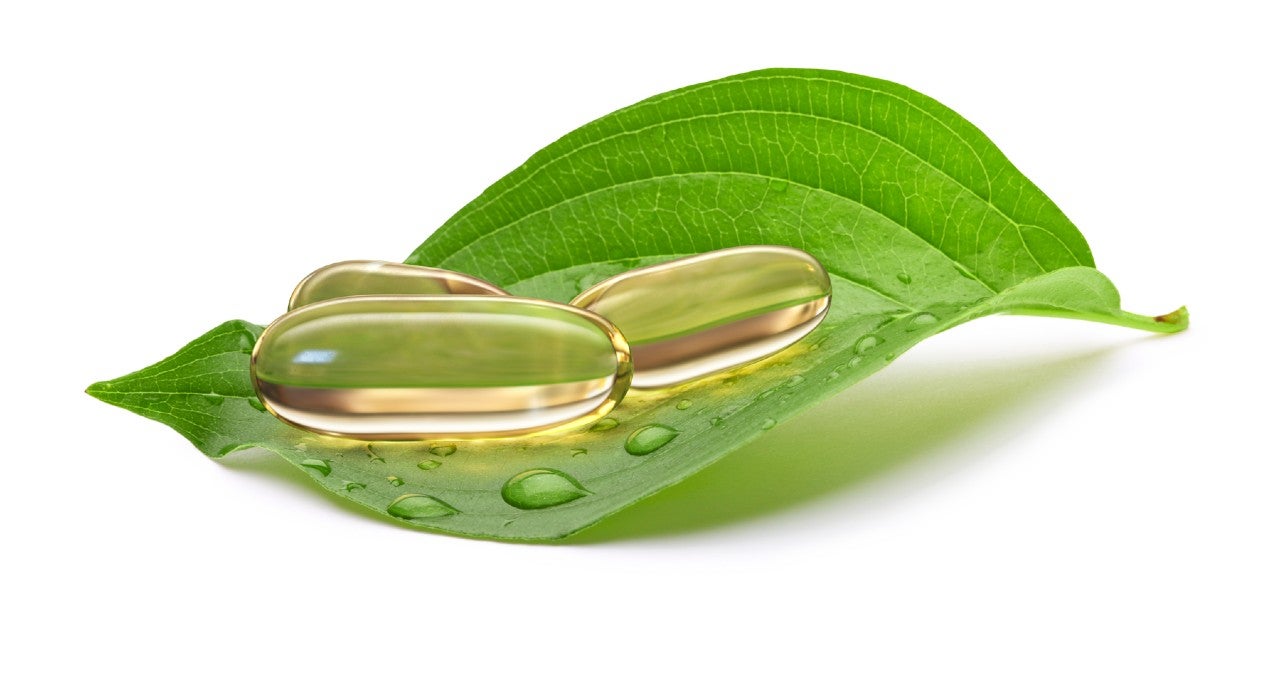
Highly stable and offering a long shelf life, soft gelatin (softgel) capsules have gained popularity as an alternative supplement delivery system to oils and pills. They can also help manufacturers enhance the bioavailability of active pharmaceutical ingredients (APIs). Tasteless, visually appealing, and easy to swallow, softgels have quickly become popular with consumers, although one limiting factor for those following a vegetarian or vegan diet and for some religious demographics, is their use of gelatin from bovine or porcine sources.
To answer this problem, vegetarian soft capsules were developed and promoted as an alternative for people avoiding the consumption of animal-based products, whether for religious or dietary reasons. Demand for such capsules is rising as consumers become increasingly mindful of the ethical and environmental impact of the ingredients in their food, health and personal care purchases. In general, vegetarian, eco-friendly and more ‘natural’ alternatives to gelatin are likely to be looked on favourably by a growing number of consumers and should be offered wherever possible by the health and nutrition industry.
Developed by softgel experts at Sofgen Pharmaceuticals, Versagel™ is a plant-based softgel technology made from non-ionic vegetable polymer materials. In the process of creating this much-needed vegan softgel, Sofgen Pharmaceuticals discovered a range of advantages these materials could offer. One benefit involves the avoidance of capsule shell crosslinking during the softgel’s shelf life. Another was improved stability and better encapsulations for fills with extreme pH values, high ionic strengths or that require high temperatures.
A challenge encountered with this technology is obtaining adequate seal thickness or high seals. This is very important for ensuring good shelf-life stability in hotter and humid conditions. To put the technology to the test, Sofgen Pharmaceuticals carried out a study and comparative analysis of Versagel with four commercial references.
The capsules were stored at 40°C for a month, with 75% relative humidity. They were characterised and evaluated from the initial month (month 0) and again at month 1 of accelerated stability. Tests examined the visual appearance of the capsules, the thickness of the seal, capsule disintegration, and hardness.
The table below presents the shell and fill ingredients for Versagel and each reference product.
Visual inspection
The capsules’ visual characteristics were evaluated for appearance and shape, visually acceptable seals, leakages through the seal, uniform colour, and clumping (agglutination). After one month of accelerated stability, all capsules retained good shape, uniform colour and visually acceptable seals, with no leakages or clumping present.
Seal thickness
A LABOMED microscope was used to determine the percentage of seal. Capsules were cut to obtain a ring to measure the thickness of the shell wall and seal. By dividing the seal thickness by the shell wall thickness, the percentage of seal was calculated. Five samples were evaluated for each product, with the averages reported.
A seal thickness of more than 40% is required to prevent leakages or bursting during the product’s shelf life, and a thicker seal generally leads to greater shelf-life stability. Versagel showed the highest seals (59%-70%). Apart from reference 3, the other references had adequate seals above 40%.
Disintegration time
For capsule disintegration, an acetate buffer 0.05M was used and tests were performed in the 1000ml Apparatus 2 at 50rpm and 37°C. Six samples were analysed per product. The accepted criteria was the USP <2040> Disintegration and Dissolution of Dietary Supplements, which states that the capsules need to disintegrate in less than 60 minutes.
Results showed compliance for each reference, with disintegration times less than 40 minutes recorded for all samples. No significant changes in disintegration times were observed over the month, which suggests good stability for all products. The two products with the quickest disintegration times were reference 4 and Versagel.
Hardness
To evaluate hardness levels, a Bareiss brand gelatine durometer was used (digi test, weight 20 Newtons). Ten capsules were evaluated and the average was reported.
Soft gelatin capsules typically have 9N to 13N hardness and develop a harder shell than vegetable starch polymers. For the soft vegetable capsules, the results show hardness levels between 2.1N and 3.7N at month 0 and between 1.8N and 3.4N after a month in accelerated stability.
Overall, Versagel is a high-performance, highly stable soft vegetable capsule that caters to the needs of growing trends in the consumer market while also being a great option for high-temperature encapsulations and products with high-pH fill content. As well as overall good properties during accelerated stability, the product’s specific advantages include high seal thickness, low disintegration times and low hardness, with Versagel outperforming other products on the market in these respects.


